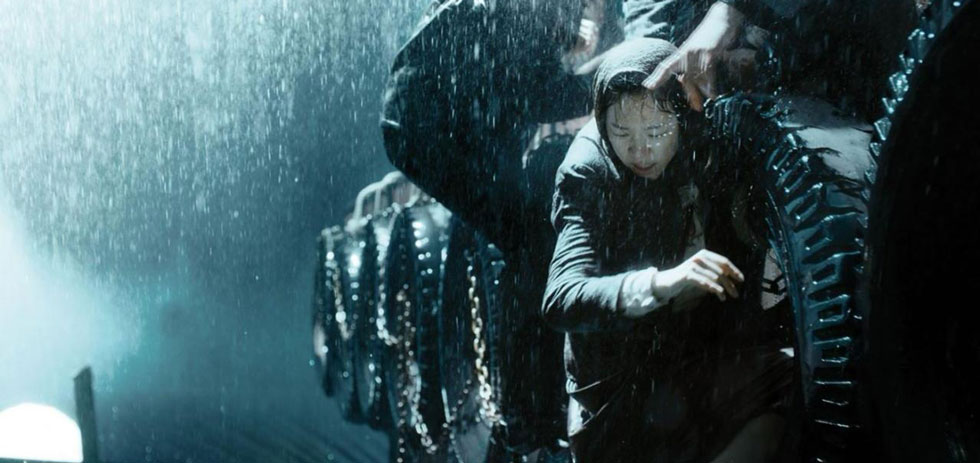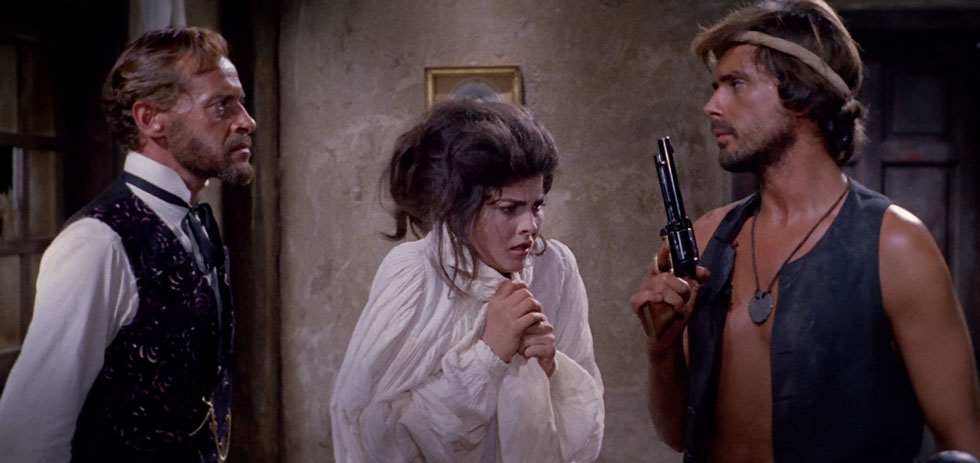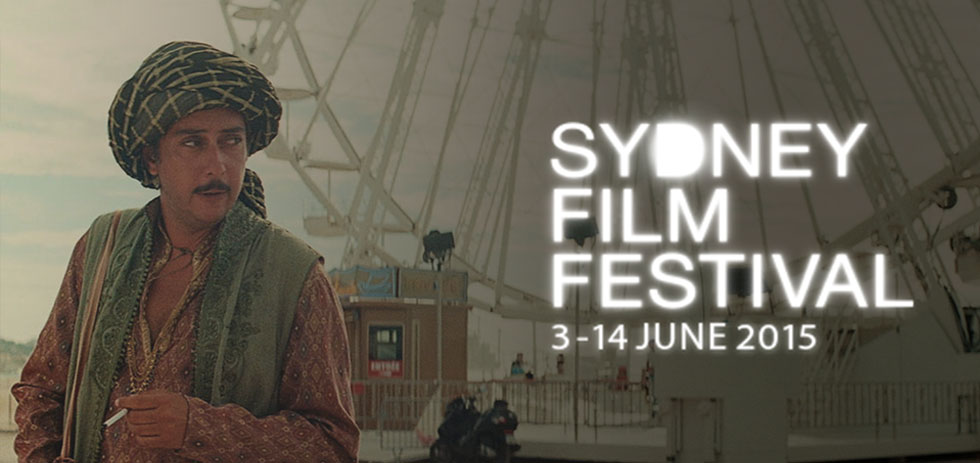This morning at Customs House in Circular Quay, Sydney Film Festival director Nashen Moodley revealed the 2015 festival programme, an impressive and varied collection of films selected from a wide range of international festivals, the centerpiece of which was, as always, the Official Competition, featuring the latest films from the likes of Roy Andersson, Jafar Panahi and Miguel Gomes.
Gomes’ Arabian Nights is the biggest competition drawcard, less for its festival prestige (it plays at the Cannes Directors’ Fortnight in mid-May) than its 383-minute runtime. Gomes’ follow-up to 2012 SFF Competition contender Tabu is a six-hour, three-part odyssey that is perhaps the most inspired competition choice for Moodley since he programmed Anurag Kashyap’s five-hour Gangs of Wasseypur in his first year as festival director, fittingly also in 2012.1 Other films bringing the prestige of European festival selection include Golden Bear winner Tehran Taxi (formerly just Taxi) from Jafar Panahi, Silver Bear winner (for cinematography) and one-shot wonder Victoria, Francesco Munzi’s Venice winner Black Souls, and Roy Andersson’s Golden Lion-winning A Pigeon Sat on a Branch Reflecting on Existence; Sundance hits Me and Earl and the Dying Girl and iPhone-shot Tangerine are also in the running. Alongside these are the latest from Iranian director Rakhshan Bani-Etemad, Tales, and Vincent, a minimalist superhero film from French director Thomas Salvador. There are also three Australian films in the official competition, the debut features from Kim Farrant (Strangerland) and theatre director Simon Stone (The Daughter), as well as the sole documentary of the bunch, Sherpa, a harrowing account of the 2014 Himalayan avalanche from director Jennifer Peedom.
The other films programmed are divided into the State Theatre-screening Special Presentations and a general features section, to be screened primarily at Event Cinemas George St. Whilst the Special Presentations always offer an engaging array of cinematic stylings, it’s actually some of the films not screening at the State that seem most worthy of that screening space, such as Guy Maddin and Evan Johnson’s The Forbidden Room, Pablo Larrain’s Berlinale hit The Club, Abel Ferrara’s Pasolini, Lav Diaz’s (also six-hour long) From What is Before, and the controversial sign-language only film The Tribe, from Ukrainian director Myrsoslav Slaboshptyskiy. The actual Special Presentations line-up does contain some really exciting films, though, like Rick Famuyima’s A$AP Rocky-starring Dope, Peter Strickland‘s The Duke of Burgundy, Kore-eda Hirokazu’s Our Little Sister, and Christian Petzold’s Phoenix.

As always, there are a number of hidden gems scattered throughout the features and documentary programming, and some of those that have stood out to us include Chaitanya Tamhane’s Hindi-language legal drama Court, Shim Sung-bo’s Haemoo (co-written and produced by Bong Joon-ho), Hong Sang-soo’s time-bending Hill of Freedom, Andrew Bujalski’s Computer Chess follow-up Results, Ryuichi Hiroki’s quirky ensemble drama Kabukicho Love Hotel, and the Michel Houellebecq-starring Near Death Experience. There’s also one of the most anticipated films out of China last year, Peter Ho-Sun Chan’s Dearest, which follows the tale of an abducted child in Shenzhen as a parable for endless greed.
With regards to documentary programming, the big drawcard is Joshua Oppenheimer’s The Look of Silence, his companion-piece to SFF 2013 Official Competition film The Act of Killing. It’s surprising that The Look of Silence didn’t appear in this year’s competition, but furthermore disappointing that it will not be playing at the State Theatre during the festival’s run. In addition to the Oppenheimer, the rest of the documentary films are an impressive bunch, programmer Jenny Neighbour once more performing a pretty remarkable job in programming films as diverse as Zhou Hao’s True/False festival hit The Chinese Mayor, Ulrich Seidl’s In the Basement2, Patricio Guzman’s The Pearl Button, Albert Maysles’ penultimate film Iris, and bizarre Sundance favourite The Russian Woodpecker, about a conspiratorial investigation into the Chernobyl disaster. Also showing are two films from the ever-prolific documentarian (and 4:3 favourite) Alex Gibney, who has the controversial Scientology doc Going Clear: Scientology and the Prison of Belief in Special Presentations and his James Brown documentary Mr. Dynamite: The Rise of James Brown screening as part of the Sounds on Screen series.
Another double, and one that can’t help but be a strange disappointment in the programming of the festival, is the addition of two Russell Brand-centric documentaries, Brand: A Second Coming, which follows his life story and is for some reason taking up a Special Presentation slot, and a film he co-directed with SFF favourite Michael Winterbottom, the polemical The Emperor’s New Clothes, which follows Brand fighting income inequality the only way he knows how – by putting his mug front and center.

Sydney Film Festival is expanding in 2015 with Dendy Newtown and Casula Powerhouse signalling a marked expansion into both the Inner West and the West for the festival. Dendy Newtown will play host to a selection of Freak Me Out catalogue films – including the previously announced Deathgasm and U.S VOD hit Spring – as well as a double feature of the original 1950s Invasion of the Body Snatchers and Them!, alongside a group of the more contemporary films at the festival such as the promising Station to Station and The Tribe. On the other side, Casula Powerhouse will be screening Slow West, The Crow’s Egg, Western Sydney-set Riz, and competition film Strangerland.
Screen Black – the festival’s collaboration with Screen Australia’s Indigenous Department – continues this year with two programs. Songlines on Screen, which focuses on a series of shorts revolving around Aboriginal and Torres Strait Islander song lines incorporating the full spectrum of storytelling, dance, song, art, body painting and sites of significance. Meanwhile, Pitch Black Shorts presents seven new short films featuring an extensive array of Indigenous talent.
Chris Fujiwara, the former artistic director of the Edinburgh International Film Festival, serves as the Guest Programmer for the Destruction Cinema retrospective. The term emerged to identify the films that emerged out of the late ‘60s and ‘70s, specifically in the avant-garde sphere, that were concerned with the art of demolition. The retrospective notably features the Werner Herzog’s second feature film Even Dwarfs Started Small. Besides that, there’s Larry Cohen’s romp through New York killers in God Told Me To, Giulio Questi’s surrealist western Django Kill… If You Live, Shoot!, and Jackie Raynal’s enigmatic Deux Fois. Other retrospective screenings include restorations of The Colour of Pomegranates and Touki Bouki, alongside the director’s cut of 54 and, most excitingly, Bong Joon-ho’s masterpiece, Mother, screening in a new black-and-white version, with its screening at Sydney Film Festival only the second festival showing of this version, after the Busan International Film Festival premiered it in 2013.3
After last year’s country focus (China: Rebels, Ghosts and Romantics), 2015’s festival throws its attention towards the cinema of South Africa. Mark Dornford-May’s Breathe Umphefumlo – an adaptation of Puccini’s La Boheme – recontextualises a tale of doomed love into contemporary streets of Khayelitsha. The Shore Break looks at the country’s environment, while Necktie Youth studies disillusioned youth in Johannesburg. On the other hand, Joe Bullet – a South African Blaxploitation film from the 1970s – marks a broader survey of the history of the country’s cinema, rather than simply a presentation of the more contemporary side.
In the weeks leading up to the festival, we here at 4:3 will be publishing a series of essays and our regular Staff Picks column, to cover as much of this expansive programme as possible. You can purchase tickets for the festival here.
SYDNEY FILM FESTIVAL – OFFICIAL COMPETITION 2015
Arabian Nights
Black Souls
The Daughter
Me and Earl and the Dying Girl
A Pigeon Sat on a Branch Reflecting on Existence
Sherpa
Strangerland
Tales
Tangerine
Tehran Taxi
Victoria
Vincent
